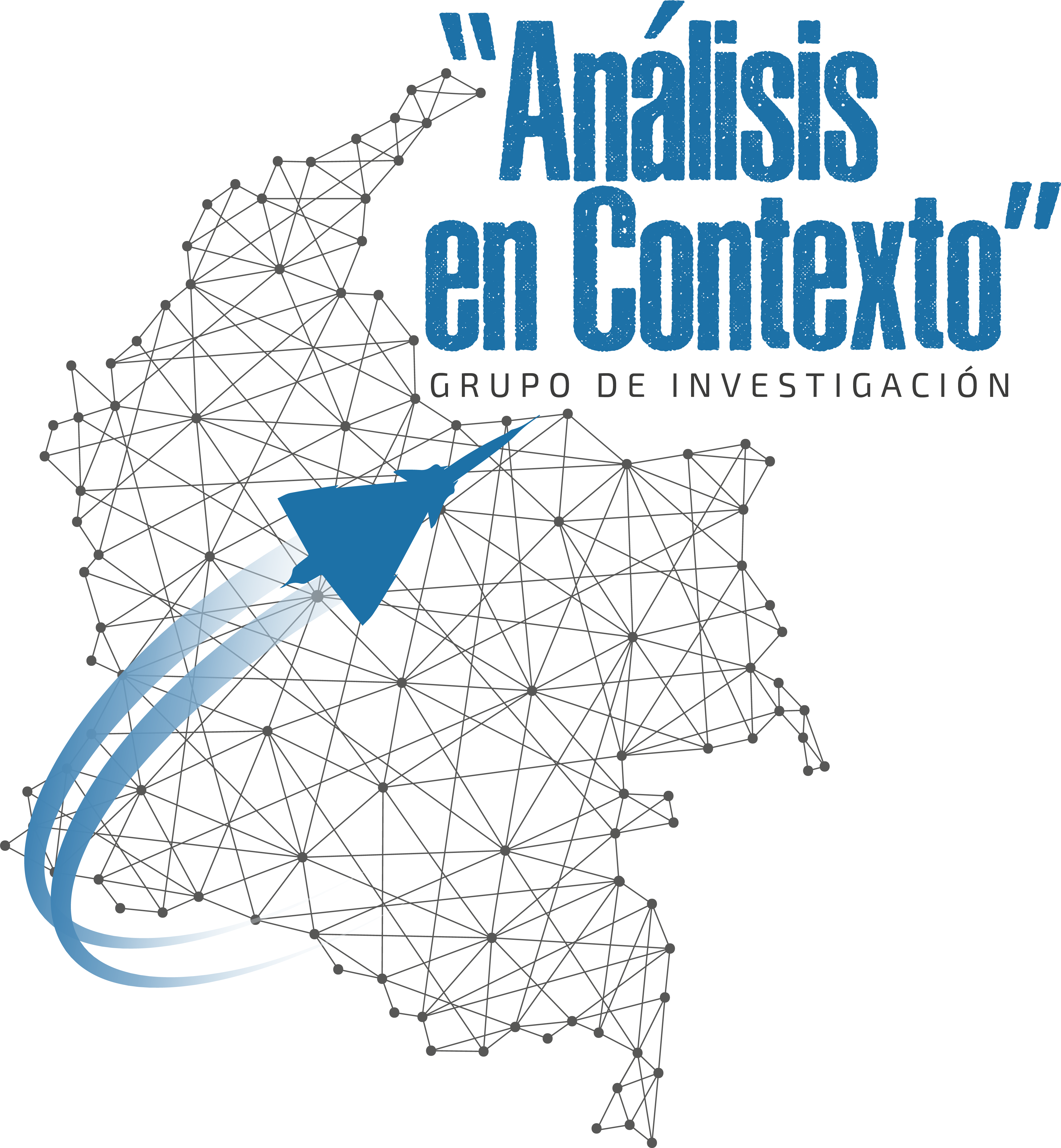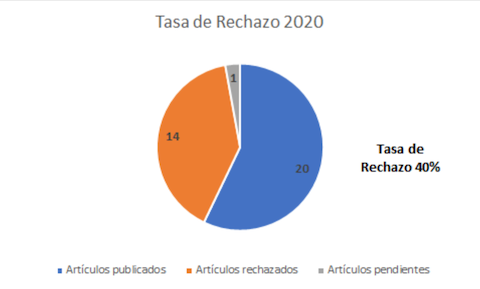Democracia x crescimento econômico: Quem veio primeiro, a galinha ou o ovo?
DOI:
https://doi.org/10.18667/cienciaypoderaereo.660Palavras-chave:
Crescimento econômico, democracia, desenvolvimento, instituições políticas/econômicasResumo
Por muitos anos foi ensinado nas aulas de clase que o melhor remedio para o desenvolvimento econômico é a fortaleza democrática. Nesse sentido, quanto maiores são as liberdades sociais, maiores são as oportunidades de crescimento de uma nação. No entanto, com o rápido desenvolvimento dos tigres asiáticos, onde a democracia não seria o denominador comum, a visão de desenvolvimento voltou-se não necessariamente para a fortaleza democrática, mas também para a estrutura das instituções. Embora a democracia pudesse continuar sendo o ingrediente principal para alcançar o almejado e ocidentalizado desenvolvimento econômico (Lipset, 1959a/b), não é necessariamente a única variável a ser considerada para determinar esse progresso; pelo contrário, o tipo de instituções ajuda a estabelecer incentivos e criar melhores condições para atingir essa “decolagem” política e econômica. Deste modo, a democracia, ao longo prazo, permitiria abrir caminho ao desenvolvimento, não sem desconhecer a importância da história em cada país, o que no final acaba determinando as próprias singularidades no seu desenvolvimento.
Downloads
Referências
Acemoglu, D. (2012). Introduction to economic growth. Journal of economic theory, 147(2), 545-550.
Acemoglu, D., & Robinson, J. A. (2000). Political losers as a barrier to economic development. American Economic Review, 90(2), 126-130.
Acemoglu, D., & Robinson, J. A. (2012, 18 de junio). 10 Reasons Countries Fall Apart. Foreign Policy, (194), 89.
Acemoglu, D., & Robinson, J. A. (2014). Por qué fracasan los países. Los orígenes del poder, la prosperidad y la pobreza. Revista Austral de Ciencias Sociales, 26, 139-146.
Acemoglu, D., Naidu, S., Restrepo, P., & Robinson, J. A. (2019). Democracy does cause growth. Journal of Political Economy, 127(1), 47-100.
Barro, R. J. (1996). Determinants of economic growth: A cross-country empirical study. Cambridge: National Bureau of Economic Research.
Baum, M. A., & Lake, D. A. (2003). The political economy of growth: democracy and human capital. American Journal of Political Science, 47(2), 333-347.
Bayart, J. F. (2010). Les études postcoloniales. Un carnaval académique. Politique étrangère, (4), 912-918.
Burkhart, R. E., & Lewis-Beck, M. S. (1994). Comparative democracy: The economic development thesis. American Political Science Review, 88(4), 903-910.
Cardoso, F. H., & Faletto, E. (1979). Dependency and development in Latin America. California: University of California Press.
Cheibub, J. A., Przeworski, A., Limongi, F. P., & Álvarez, M. M. (1996). What makes democracies endure? Journal of Democracy, 7(1), 39-55.
Feng, Y. (1997). Democracy, political stability and economic growth. British Journal of Political Science, 27(3), 391-418.
Haggard, S. (1990). Pathways from the periphery: The politics of growth in the newly industrializing countries. Ithaca: Cornell University Press.
Haggard, S., & Kaufman, R. R. (2008). Development, democracy, and welfare states: Latin America, East Asia, and Eastern Europe. Nueva Jersey: Princeton University Press.
Helliwell, J. F. (1994). Empirical linkages between democracy and economic growth. British journal of political science, 24(2), 225-248.
Heo, U., & Tan, A. C. (2001). Democracy and economic growth: A causal analysis. Comparative Politics, 33(4), 463-473.
Huntington, S. P. (1970). Political order in changing societies. VRÜ, Verfassung und Recht in Übersee, 3(2), 257-261.
King, G., Pan, J., & Roberts, M. E. (2013). How censorship in China allows government criticism but silences collective expression. American Political Science Review, 107(2), 326-343.
Krieckhaus, J. (2006). Democracy and economic growth: how regional context influences regime effects. British Journal of Political Science, 36(2), 317-340.
Leblang, D. A. (1996). Property rights, democracy and economic growth. Political Research Quarterly, 49(1), 5-26.
Linz, J. J., & Valenzuela, A. (Eds.). (1994). The failure of presidential democracy. Comparative perspectives Volume 1. Baltimore: Johns Hopkings University Press.
Lipset, S. M. (2001) Algunos requisites sociales de la democracia: Desarrollo económico y legitimidad política. En: 10 Textos Básicos de Ciencia Política. España: Ariel, pp. 113-150.
Lipset, S. M. (1959a). Political man: The social bases of politics. Baltimore: Johns Hopkings University Press.
Lipset, S. M. (1959b). Some social requisites of democracy: Economic development and political legitimacy. American Political Science Review, 53(1), 69-105.
Londregan, J. B., & Poole, K. T. (1996). Does high income promote democracy? World politics, 49(1), 1-30.
Mainwaring, Scott and Aníbal Pérez-Liñán (2005). “Latin American Democratization since 1978: Democratic Transitions, Breakdowns and Erosions”. En: The Third Wave of Democratization in Latin America. Advances and Setbacks, editado por Frances Hagopian y Scott Mainwaring. . United States of America. Cambridge University Press.
Mody, A., & Wang, F. Y. (1997). Explaining industrial growth in coastal China: economic reforms… and what else? The World Bank Economic Review, 11(2), 293-325.
Moore, B. (1966). Social origins of dictatorship and democracy: Lord and peasant in the making of the modern world. Boston: Beacon Press.
Needler, M. C. (1968). Political development and socioeconomic development: the case of Latin America. American Political Science Review, 62(3), 889-897.
Nelson, M. A., & Singh, R. D. (1998). Democracy, economic freedom, fiscal policy and growth in LDCs: a fresh look. Economic Development and Cultural Change, 46(4), 677-696.
O’Donnell, G. A. (1973). Modernization and bureaucratic-authoritarianism: studies in South American politics. Berkeley: University of California Intl.
Olson, M. (1945). The varieties of Eurosclerosis: the rise and decline of nations since 1982. Economic growth in Europe since, 73-94.
Olson, M. (1984). Rise and decline of nations. Economic Growth, Stagflation, and Social Rigidities. Connecticut :Yale University Press
Przeworski, A. (1991). Democracy and the market: Political and economic reforms in Eastern Europe and Latin America. Cambridge: Cambridge University Press.
Przeworski, A. (2004). Institutions matter? Government and opposition, 39(4), 527-540.
Przeworski, A., Álvarez, R. M., Álvarez, M. E., Cheibub, J. A., & Limongi, F. (2000). Democracy and development: political institutions and well-being in the world, 1950-1990. Cambridge: Cambridge University Press.
Przeworski, A., Limongi, F. P, Giner, S. (1995). Political regimes and economic growth. En: Democracy and development (pp. 3-27). Londres: Palgrave Macmillan.
Sirowy, L., & Inkeles, A. (1990). The effects of democracy on economic growth and inequality: A review. Studies in Comparative International Development, 25(1), 126-157.
Tilly, C. (2017). War making and state making as organized crime. En. Collective violence, contentious politics, and social change (pp. 121-139). Londres: Routledge.
Wade, R. (2004). Governing the market: Economic theory and the role of government in East Asian industrialization. Nueva Jersey: Princeton University Press.

Downloads
Publicado
Edição
Seção
Licença
Declaração de cessão de direitos autorais à revista
O autor cede exclusivamente à Revista os direitos de exploração (reprodução, distribuição, comunicação pública e transformação) para explorar e comercializar a obra, no todo ou em parte, em todos os formatos e modalidades de exploração presentes ou futuros, em todas as línguas, por todo o período de vida da obra e pelo mundo inteiro.
Todo o conteúdo publicado na revista científica Ciencia y Poder Aéreo está sujeito à licença de reconhecimento internacional Creative Commons 4.0, cujo texto completo pode ser encontrado em http://creativecommons.org/licenses/by/4.0/
A licença permite que qualquer usuário baixe, imprima, extraia, arquive, distribua e comunique publicamente este artigo, desde que seja dado o devido crédito aos autores: ao(s) autor(es) do texto e a Ciencia y Poder Aéreo, Revista da Escola de Pós-Graduação da Força Aérea Colombiana. Exceto quando for indicado o contrário, o conteúdo deste site será licenciado sob uma licença Creative Commons Attribution 4.0 Internacional.
Para usos de conteúdo não previstos nestas normas de publicação é necessário entrar em contato diretamente com o diretor ou editor da revista através do e-mail cienciaypoderaereo1@gmail.com
A Escola de Pós-Graduação da Força Aérea Colombiana e esta revista não são responsáveis pelos conceitos expressos nos artigos, nem pelos metadados fornecidos ou pelas afiliações que os autores declarem, sendo assim de inteira responsabilidade dos autores.

Licença Creative Commons
Os autores concedem à revista os direitos de exploração (reprodução, distribuição, comunicação pública e transformação) para explorar e comercializar a obra, inteira ou parcialmente, em todos os formatos e modalidades de exploração presentes ou futuras, em todas as línguas, por todo o período de vida da obra e no mundo inteiro.
Todos os conteúdos publicados na revista científica Ciencia y Poder Aéreo estão sujeitos à licença de reconhecimento 4.0 4.0 Internacional de Creative Commons, cujo texto completo pode-se consultar em http://creativecommons.org/licenses/by/4.0/
A licença permite a qualquer usuário baixar, imprimir, extrair, arquivar, distribuir e comunicar publicamente um artigo, desde que seja dado crédito aos autores do trabalho: aos autores do texto e a Ciencia y Poder Aéreo, Revista Científica da Escola de Pós-Graduação da Força Aérea Colombiana. Salvo onde for indicado o contrário, o conteúdo deste site é licenciado sob uma licença Creative Commons Atribución 4.0 internacional.
Para usos de conteúdo não previstos nestas normas de publicação é necessário entrar em contato diretamente com o diretor ou editor da revista através do e-mail cienciaypoderaereo1@gmail.com
A Escola de Pós-Graduação da Força Aérea Colombiana e esta revista não são responsáveis pelos conceitos expressos nos artigos, nem pelos metadados fornecidos ou pelas afiliações que os autores declarem, sendo assim de inteira responsabilidade dos autores.




















